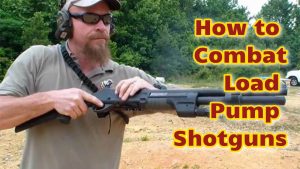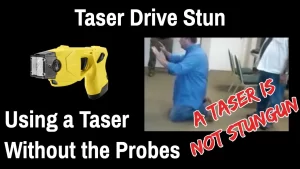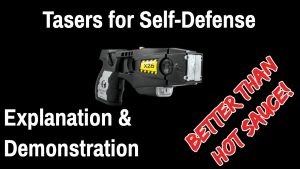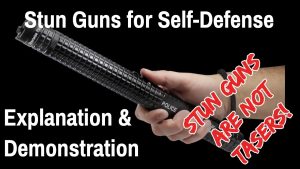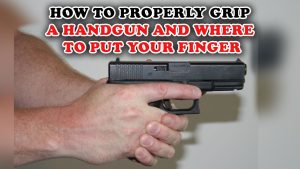
What to Look for in a Firearms Instructor
Personal Protection is a serious business; however, it has become a business. There are many schools and many more instructors out their competing for your training dollars. While it is possible to learn from any situation, your personal defense training should be from the best available instructor. The following is a guide to what to look for in a firearm instructor.
The most obvious are qualifications; the instructor should have some formal training from an established organization. This is not to say that someone without formal certifications doesn’t know about firearms, just that formal training ensures that instructors know instructional methods and techniques beyond what a recreational shooter might have. Formal qualifications also help with legal defensibility if the student ever has to use their training. If student was trained to an accepted standard by a certified instructor and follow their training their legal liabilities are lessened. The most recognized firearm instructor qualifications are NRA civilian and Law Enforcement instructor, State Police Officer Standards and Training Commission (POST) Firearm Instructor, and FBI Firearm Instructor Certification. These three are the most common, but there are many others.
Instructor personality plays a large part in what you take away from a class. Unfortunately some people become instructors because they need to feed their ego, not because they want to teach. It is important that before you decide on a course you should call the instructor and listen to what they say. An overactive ego is something that is very evident with little contact with the instructor. Is the instructor negative, do they bad mouth other instructors or companies? The truly competent will not feel the need to do this. Do they spend too much time attempting to impress you with how much they know? Having an instructor that fills the class with their “war stories” might be entertaining but are you paying for entertainment or information. Drill instructors work well in the military; however, civilian training is not the military.
Do they feel the need to down or degrade your equipment because it’s not what the instructor prefers to carry? Some instructors hate guns like Glocks, or think revolvers are the best. Some spend class time talking about personal preference. Handguns are personal choices and should be approached as such. The instructor is not the one that has to use, carry, or depend on the firearm you are.
What is the layout of the course, does it meet all the necessary legal requirements. If there is a legal time requirement for a carry permit class, does the course fulfill the requirements? To often a mandated 8 hour class is cut short, while it is always nice to get out of class early, being shortchanged on training time could cause legal problems if the training is ever used for self defense.
Can the instructor provide references, or can you talk to former students. How long has the instructor been in business? How long have they been using firearms? How many classes does the instructor take himself? It is a good indication of the instructor’s level of commitment to the industry to see how much continuing education they take in a year. One 40 hour course does not make a competent instructor. A lifelong devotion to learning and passing that skill onto others does.
Do they teach in a style you can relate to? Some classes are sport based, and this is fine if your interest is shooting sports. But would tactics based upon winning a game be what you wish to learn if you desire is real world defensible tactics? Does their facility match the information they are trying to teach. Facilities are not as important as the instructor, however, if they don’t have a range that can accommodate the students for such factors as size, layout, or restrictions can you learn as much as you could at a range where you could practice the skills being taught.
Does the instructor have integrity? How do they answer tough questions? Will they make up answers, or will they tell you they do not know. Will they find out the answer for you? Do they make unreasonable claims or exaggerate their own skills. Can they perform the skills they are teaching?
Basically is the instructor competent to teach the material, are you comfortable with them, and can you learn from the methods they use to teach the material. Some instructors use humor, some are dry and serious. Whatever they do or whatever their training style, make sure you are happy as it’s your life you are training to protect.
